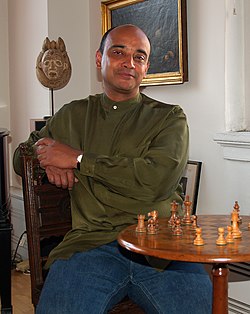 | |
| Established | 1832 |
|---|---|
Parent institution | New York University, Arts & Science (College of Arts & Science, Graduate School of Arts & Science) |
| Chairperson | Sharon Street |
| Address | 5 Washington Pl , , , 10003 , |
| Website | as.nyu.edu/philosophy |
The New York University Department of Philosophy offers B.A. and Ph.D. degrees in philosophy, as well as a minor in philosophy and a joint major in language and mind with the NYU Departments of Linguistics and Psychology. [1] It is home to the New York Institute of Philosophy, a research center that supports multi-year projects, public lectures, conferences, and workshops in the field, as well as outreach programs to teach New York City high school students interested in philosophy. [2]
Contents
- Gallery of prominent faculty
- Current faculty
- Emeritus faculty
- Notable former faculty
- Notable former visiting scholars
- Notable alumni
- Other philosophers affiliated with NYU
- Student organizations
- Rankings
- References
- External links
The faculty and students have close relations with the philosophy department of Columbia University. Every year, NYU and Columbia philosophy graduate students organize the Annual NYU/Columbia Graduate Student Philosophy Conference. [3] Furthermore, doctoral students are able to cross-register to take courses at Columbia University, as well as at the other members of the Inter-University Doctoral Consortium (IUDC): Princeton University, CUNY Graduate Center, Rutgers University, Fordham University, Stony Brook University, and The New School. [4] Within NYU, the department works especially closely with the School of Law, whose Center for Law and Philosophy hosts the Colloquium in Legal, Political, and Social Philosophy on a weekly basis during the fall semester of each academic year. [5] Many former and current faculty members of the department have held or currently hold dual appointments in both philosophy and law, including Ronald Dworkin, Thomas Nagel, Liam Murphy, Samuel Scheffler, Jeremy Waldron, and Kwame Anthony Appiah. Other research centers affiliated with the department are the Center for Bioethics and the Center for Mind, Brain, and Consciousness. [6]
The department is housed in 5 Washington Place, a historic building within the jurisdiction of the New York City Landmarks Preservation Commission near the border between the neighborhoods of NoHo and Greenwich Village. The interior of the building was completely renovated in 2007 by Steven Holl Architects, featuring design elements inspired by the writings of philosopher Ludwig Wittgenstein, namely his Remarks on Colour . [7]








